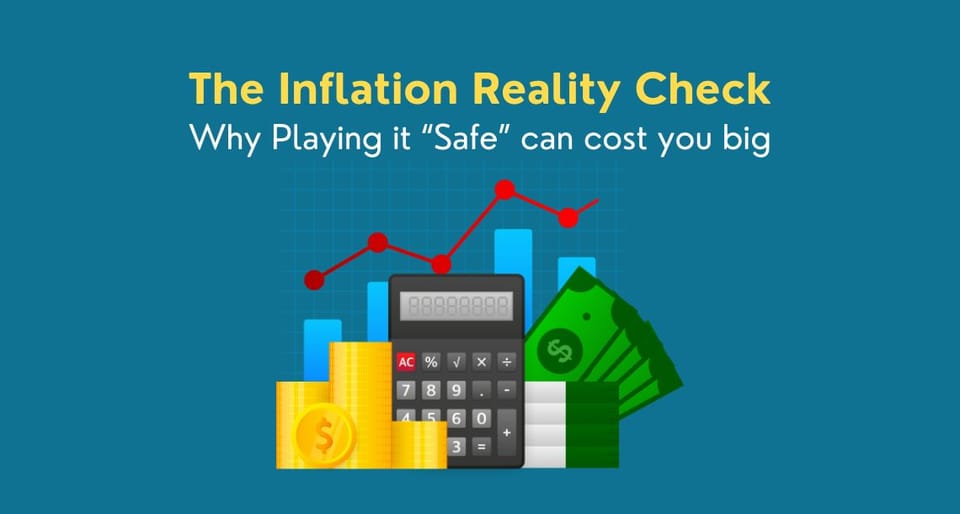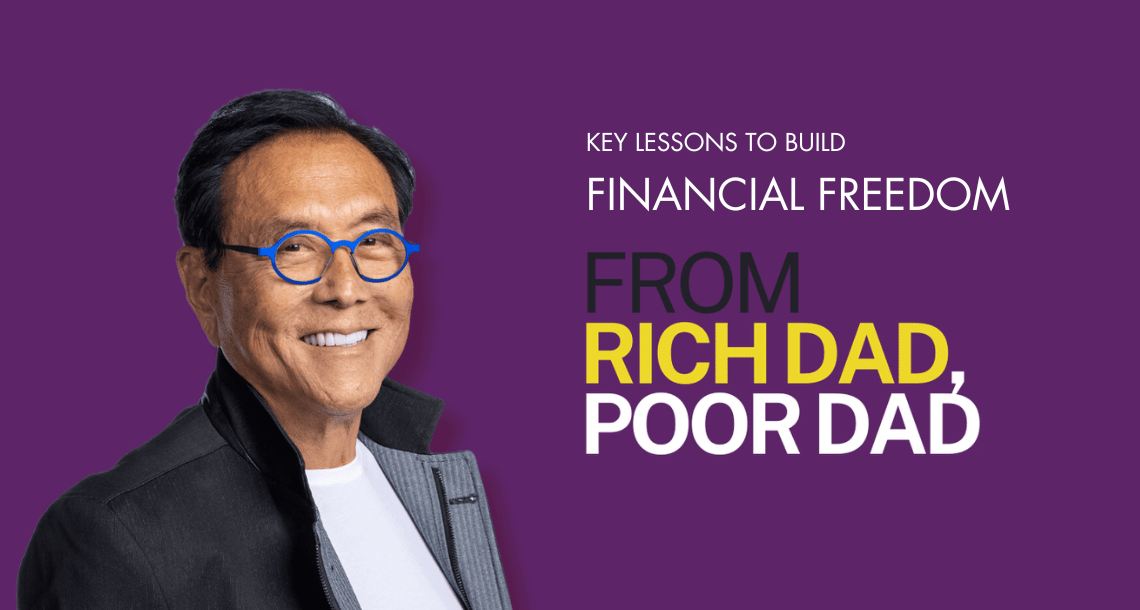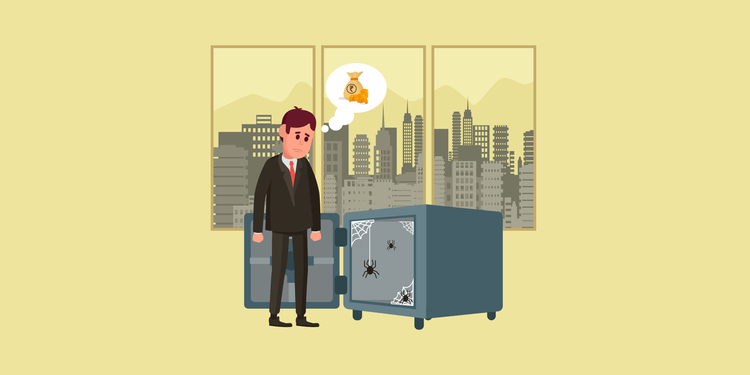The Inflation Reality Check: Why Playing It “Safe” Can Cost You Big

When we think of financial safety, most of us turn to Fixed Deposits (FDs), savings accounts, or other low-risk instruments. They feel secure, predictable, and familiar. But here’s the uncomfortable truth: safety without growth is often the biggest hidden risk to your money.
The Power (and Pain) of Inflation
Inflation is like silent quicksand for your finances. It doesn’t make noise, but it steadily eats away at your purchasing power.
- Today’s monthly expenses: ₹50,000
- Assume inflation at just 6% (which is not unrealistic for India)
- Fast forward 20 years → the same lifestyle will cost you ₹1.6 lakh per month
That’s more than a 3x jump in your cost of living — without you upgrading your lifestyle at all!
So, the real question is not: “How much money do I have?”
It’s: “How much will my money be worth 20 years from now?”
Why “Safe” Isn’t Always Safe
FDs and savings accounts may appear risk-free because your principal is protected. But the real risk is invisible:
- Average FD rates: ~5–7%
- Long-term inflation: ~6% or higher
If your FD gives you 6% and inflation is 6%, you’re not growing — you’re just treading water. And after tax, your real return is negative.
In other words, by keeping all your money in FDs or savings, you’re guaranteeing that your future self will be poorer in terms of purchasing power.
Equities: The Real Hedge Against Inflation
Unlike FDs, equities (stocks, equity mutual funds, ETFs) are tied to business growth, profits, and innovation. Over long periods, they’ve consistently beaten inflation.
- Indian equities have historically delivered ~12–15% annual returns over decades.
- This means they don’t just protect your money from inflation — they grow it meaningfully.
- ₹1 lakh invested in Nifty 20 years ago would now be worth over ₹12–13 lakhs, despite all market ups and downs.
Equities may be volatile in the short term, but in the long term, they align with economic growth — and that’s what makes them the most reliable inflation-beater.
Don’t Let “Safety” Cost You Your Future
The biggest risk in personal finance isn’t volatility, it’s running out of purchasing power.
✔ Inflation at 6% doubles your cost of living every 12 years.
✔ FDs and savings accounts won’t keep up.
✔ Equities, held for the long term, are your best bet to preserve and grow real wealth.
So, if your current strategy is all about “safety,” it’s time for a reality check. True safety comes from ensuring your future self can live comfortably — and that means letting growth work for you.
Play it too safe, and you might just be taking the biggest risk of all.
Frequently Asked Questions (FAQs)
1. What is inflation, and why does it matter for my money?
Inflation is the rise in the general price level of goods and services over time. It reduces the purchasing power of money — meaning the same amount of money buys less in the future.
2. How much can inflation really impact my expenses?
At just 6% inflation, monthly expenses of ₹50,000 today will grow to about ₹1.6 lakh in 20 years. That’s more than three times your current cost of living without any lifestyle upgrades.
3. Are Fixed Deposits (FDs) and savings accounts safe against inflation?
They may keep your principal safe, but in real terms, they often fail to beat inflation. After tax, FD returns usually fall below the inflation rate, meaning your money loses value over time.
4. Why are equities considered better for long-term wealth creation?
Equities grow with businesses and the economy. Over the long term, they have delivered 12–15% annual returns in India, comfortably outpacing inflation. While short-term volatility exists, equities reward patience.
5. Isn’t investing in equities risky compared to FDs?
Yes, equities can fluctuate in the short term, but the real risk is losing purchasing power due to inflation. Over long horizons (10+ years), equities are historically the most reliable wealth builders.
6. How should I balance safety and growth in my investments?
A mix works best. Keep some funds in safer instruments for liquidity and emergencies, but allocate a significant portion to equities (direct stocks or equity mutual funds) to ensure long-term growth.
7. What’s the biggest financial mistake people make regarding inflation?
Believing that "playing it safe" with FDs or savings is risk-free. The hidden risk is that your future expenses will outgrow your savings if you don’t invest in inflation-beating assets.



Member discussion